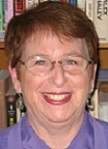How big a role do you feel being a diverse writer plays in an author staying in the publishing industry given the uncertain climate? Do you feel pressured to branch out?

"If you're intending to write as a career, you need to write lots of things in lots of different markets. The most successful writers are know are still pushing their boundaries and trying new things--maybe because they have to, but maybe just because that's the kind of attitude that made them successful in the first place." - Dan Wells, author of Fragments.

"I’ve actually always felt the opposite—pressure to stay 'within brand.' But I am what you might call a 'diverse writer,' as in I’ve written YA sci-fi, fantasy, contemporary, and paranormal. Maybe I should try historical next? Ha. So I have this worry that because my next book is always vastly different from my last, that I won’t be able to sell or build a following. I think no matter what kind of writer you are, there’s always something to worry about." - Natalie Whipple, author of Transparent.
"I think every author who wants to continue to write and sell books needs to be flexible in every way possible. I have needed to branch out and try something very new (a pen name) and it’s been successful for me." - Page Morgan, author of The Beautiful and the Cursed.
 "I’d originally planned—hoped—to be able to write both YA and middle-grade simultaneously, but my pace and inspiration has made that an impossible goal to reach. Still, I feel like that pressure came only from me. No one is pushing me to branch out and write more books than I can handle. I still think one perfectly sculpted book is better than three half-formed novels that make people shrug." - Nova Ren Suma, author of 17 & Gone.
"I’d originally planned—hoped—to be able to write both YA and middle-grade simultaneously, but my pace and inspiration has made that an impossible goal to reach. Still, I feel like that pressure came only from me. No one is pushing me to branch out and write more books than I can handle. I still think one perfectly sculpted book is better than three half-formed novels that make people shrug." - Nova Ren Suma, author of 17 & Gone.
"I think diversity opens up more opportunities to earn a living as a writer. I don’t feel pressured to branch out, but I enjoy being able to do different things and find I learn a lot that way – writing for younger age groups, doing events and workshops. I see it as part of the job and enjoy the variety and opportunities it provides." - Dave Cousins, author of 15 Days Without a Head.

"I don't feel pressured to branch out, but I do have the desire to try new styles. Like with anything in publishing, selling books in one genre won't guarantee a sale in another. For the most part, I think the variety in writing comes from an author's curiosity or growth." - Suzanne Young, author of The Program.

"To be honest, I feel lucky I'm just where I am. To be able to make a living writing is the greatest job I could ever have. But because I write genre books, I feel a lot of pressure to create fresh ideas that editors will find appealing." - Emma Carlson Berne, author of Never You Let Go.

"I never made a conscious decision to 'diversify,' but it’s what happened. The first book I wrote is sci-fi, the second is contemporary, and a completely different tone. That’s one of the best things about writing under the YA umbrella – there’s less pressure to stick to one genre. Teens are still figuring out who they are and where they fit; they don’t fault writers for being in the same boat." - Josin McQuein, author of Arclight.

"I’ve only published one book, so it’s tough to say. I don’t feel pressured to branch out, and I don’t think I could even if I was. I can’t write about something my heart’s not in." - Scott Blagden, author of Dear Life, You Suck.
 "Actually, I think it's important to have a clear view of who you are as a writer and how to add your thumbprint to the page. Readers should be able to recognize something about each book, regardless of genre or audience, that clearly says "This is an AUTHOR NAME book". I tend to have humor in all of my writing, whether fantasy or contemporary, and don't know if I'll ever stray from that thread. One thing I love about writing in the young adult and middle grade genre is writers can write and succeed in many different sub-genres. It's actually very freeing, knowing this book might be contemporary YA, but the next could be middle grade sci-fi. Jane Yolen is proof of that, as is Lauren Oliver." - Lindsey Leavitt, author of Going Vintage.
"Actually, I think it's important to have a clear view of who you are as a writer and how to add your thumbprint to the page. Readers should be able to recognize something about each book, regardless of genre or audience, that clearly says "This is an AUTHOR NAME book". I tend to have humor in all of my writing, whether fantasy or contemporary, and don't know if I'll ever stray from that thread. One thing I love about writing in the young adult and middle grade genre is writers can write and succeed in many different sub-genres. It's actually very freeing, knowing this book might be contemporary YA, but the next could be middle grade sci-fi. Jane Yolen is proof of that, as is Lauren Oliver." - Lindsey Leavitt, author of Going Vintage.  "I've been a niche writer (books for middle-graders and teens) for more than 35 years, and I've always prided myself on writing on a wide variety of topics, set in diverse places and times from contemporary to 17th century. These are books that compel young readers to think about difficult subjects. It's never been easy for me to get my books published because they're not likely to be heavy sellers. Within the last few years, I've learned that those thoughtful, provocative mid-list type books don't have a prayer of a chance to see light and print. But I'm not done yet! So, I continue to write those books that I consider "my" books, and at the same time, I'm doing some supernatural stuff that has a more popular flavor to them -- books I would never have considered writing 10 years ago. These are the ones that feed my habit, which is to say, they're marketable, so they afford me the luxury of writing "my" books and hope a publisher realizes their intrinsic value." - Lois Ruby, author of Rebel Spirits.
"I've been a niche writer (books for middle-graders and teens) for more than 35 years, and I've always prided myself on writing on a wide variety of topics, set in diverse places and times from contemporary to 17th century. These are books that compel young readers to think about difficult subjects. It's never been easy for me to get my books published because they're not likely to be heavy sellers. Within the last few years, I've learned that those thoughtful, provocative mid-list type books don't have a prayer of a chance to see light and print. But I'm not done yet! So, I continue to write those books that I consider "my" books, and at the same time, I'm doing some supernatural stuff that has a more popular flavor to them -- books I would never have considered writing 10 years ago. These are the ones that feed my habit, which is to say, they're marketable, so they afford me the luxury of writing "my" books and hope a publisher realizes their intrinsic value." - Lois Ruby, author of Rebel Spirits.
Stop by next week to see if the authors have one book or series they feel bad about not reading... yet.









































No comments:
Post a Comment